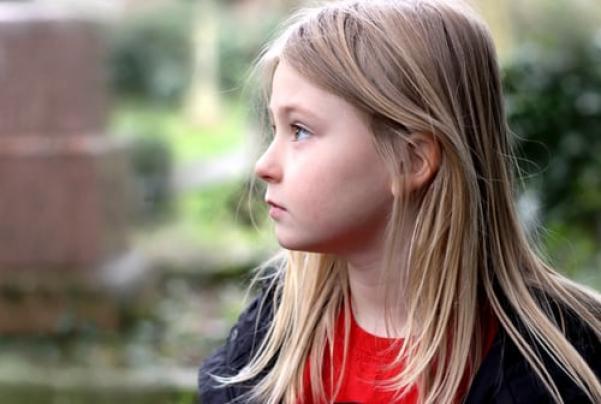Do you remember the first time you looked at your stomach and thought, ‘Hmmm. Could be smaller.’
Was it in your teens? Thirteen, twelve, maybe?
Was it at six?
Today, girls as young as six years old have thought about losing weight according to research from the British Journal of Health Psychology. Psychologist and mother, Dr. Cara Goodwin, who runs the parenting Instagram page, @parentingtranslator shared this information in a post over the weekend, shocking parents and experts with the findings. Mother to three young children, and a licensed psychologist (with a PhD in child clinical psychology), she has specialised in child development, child psychology and neuroscience, assessing children for developmental problems, doing therapy with children of all ages, and training parents.
‘Research shows that it can take 17 YEARS for scientific findings to be put into practice,’ reads Goodwin’s site. ‘As parents, if we waited that long, the job would be over! So my goal is to reduce this wait time for busy parents by providing information on scientific research that is useful, accurate, and relevant to your lives. Let me know how I can help you!’
The post linked young girl’s dissatisfaction with their bodies back to their mother’s relationship’s with their own bodies.
‘Research finds that girls begin to show a desire for thinness as early as age 6,’ the post read. ‘In this study, the 6- to 8-year-old girls reported that they wished they were significantly thinner than their current figure. For boys in the same age range and 5-year-old girls, there was no difference between their current and ideal figures (meaning they did not want to lose weight).
‘Interestingly, the extent to which a girl was dissatisfied with her body was predicted by the extent to which her mother was dissatisfied with her own body (the association was not found between girls and their fathers). In other words, a girl was more likely to not like her body if her mother also reported that she did not like her own body.
‘The girls in this study also reported that their parents were more controlling of their eating when compared to the boys in the study, despite having similar BMI’s to the boys in the study.’

It is often said children learn by example and it’s never been more clear than when we look at this study. Children learn their attitudes and behaviours from us, especially at such a young age. When these problems manifest in teenagers, we blame the media they consume, celebrity culture and exposure to unhealthy diet culture, but in children this young? At six years old our children do not yet fully comprehend the coded social messages that are being constantly marketed to us as women. But they can understand that we have accepted those messages and the fact that we are unsatisfied with our own bodies.
Shoring our daughters up against these messages is essential, before they become fully exposed in the awkward and transformative teenage years, when they can fully understand that the media want them to change, to focus on their bodies and never feel good enough.
Goodwin shared her tips for protecting your daughter and combatting this serious and underexposed issue.

Avoid any negative body talk, even when you think your child is not listening
You would be amazed what children pick up on. And also, for yourself, it’s important to embrace your body and not talk down to yourself. Those ideas can translate into your actions and how you relate to your own body.
Do not restrict foods or label foods as “good” or “bad”
No food is inherently good or bad until we are eating too much or too little of it. Creating that relationship and association in their minds can lead to either overindulgence or unhealthy restrictions that they create and impose on themselves later on . It’s about changing how we relate to food and nutrition.
Talk about your body and your child’s body with respect and appreciation
Speaking about the body is a touchy subject, but the language around it is learned from a young age. Instead of saying what the body looks like, talk about what it can do. Our bodies are fast, strong, capable – empowering language is key. It teaches them to associate their body with its purpose rather than making what it looks like, its purpose.
Allow your child to self-regulate their own eating and determine when they are “full” on their own
The idea of clearing the plate is one that needs to go. Of course, it’s important for your child to be getting the right amount of nutrients and if they’ve eaten everything except their veggies, then fair enough. But if they say they’re full but are told they can’t leave the table until they clear their plate, it’s teaching them over-eating habits, makes the dinner table a stressful instead of sociable experience and begins to associate food with pressure.





